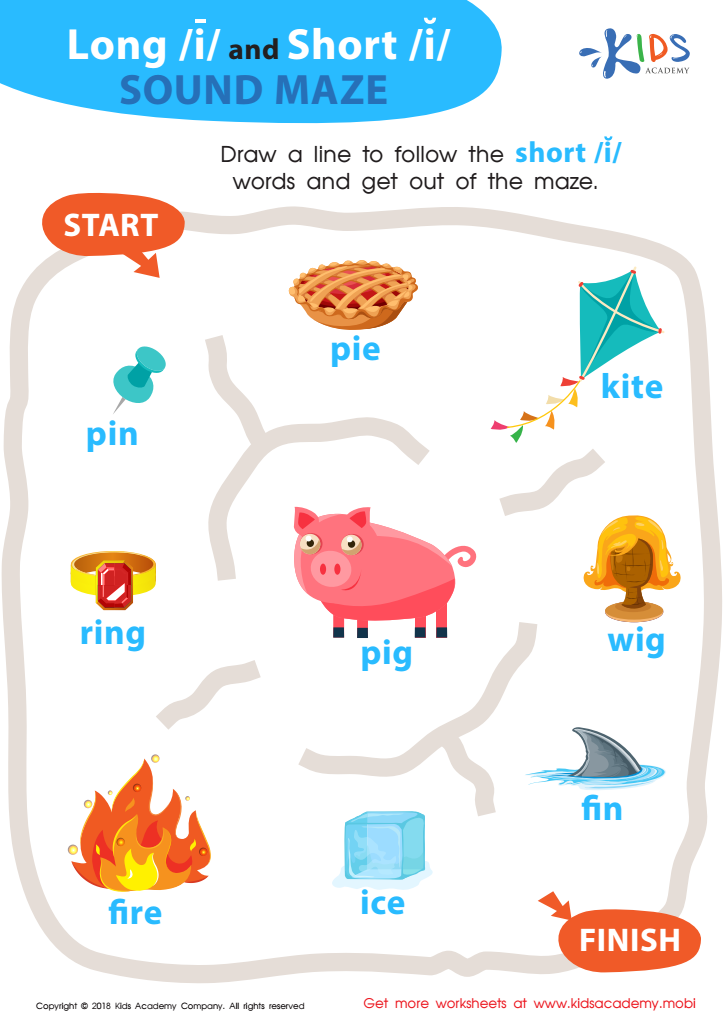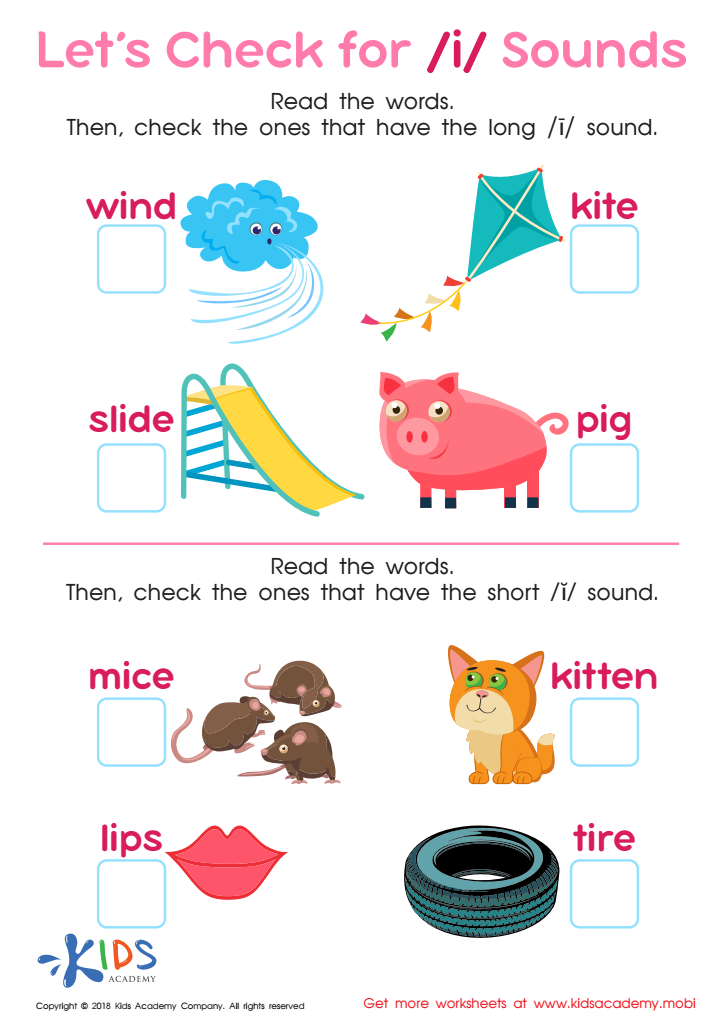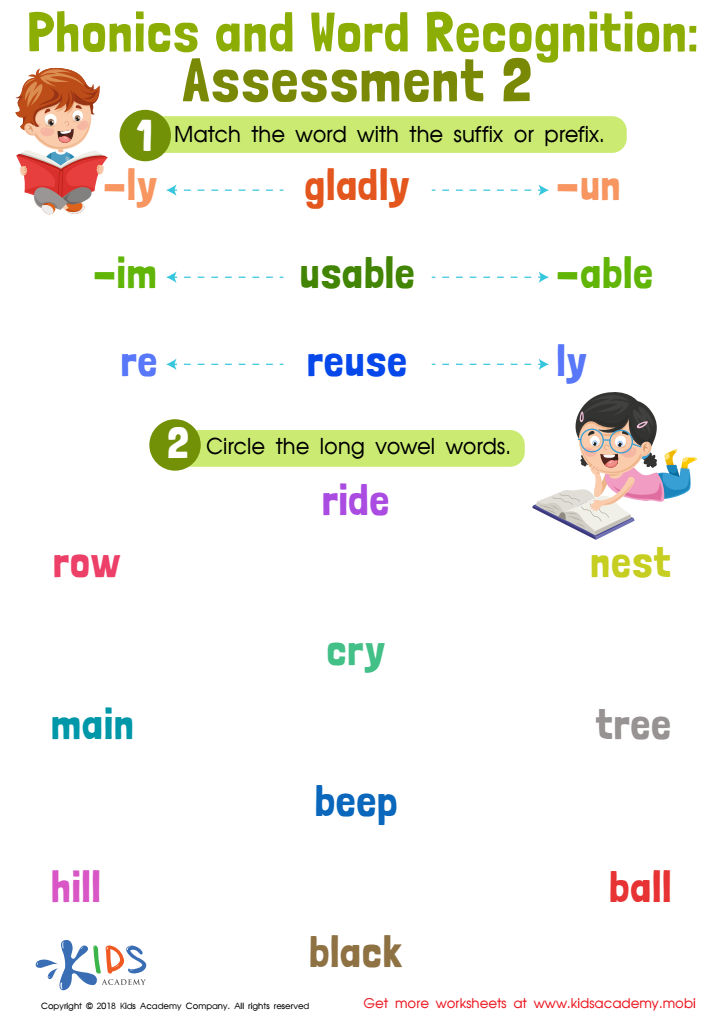Phonics recognition Vowels Worksheets for Ages 7-8
4 filtered results
-
From - To
Enhance your child's reading skills with our Phonics Recognition Vowels Worksheets for ages 7-8! Specially designed to help young learners distinguish vowel sounds, these interactive sheets make mastering phonics fun and engaging. Our age-appropriate activities develop essential literacy skills, promoting confident and fluent reading. Perfect for classroom use or at-home practice, these worksheets combine playful exercises with targeted learning goals. Give your child the tools they need to succeed in reading with Kids Academy’s expert-developed resources. Explore now to boost your 7-8-year-old’s phonics proficiency and lay a strong foundation for future language success!


Phonics and Word Recognition: Assessment 1 Worksheet


Reading: Long I and Short I Sound Maze Worksheet


Let's Check for «i» Sounds Worksheet


Phonics and Word Recognition: Assessment 2
Phonics recognition, particularly the understanding of vowels, is crucial for children aged 7-8 because it forms the foundation for reading and spelling proficiency. At this age, children transition from recognizing letters and sounds to blending them into words and sentences. Vowels are vital because they are present in every English word. Mastery of both short and long vowel sounds enhances a child's ability to decode new words, improve their pronunciation, and develop fluency.
Parents and teachers should prioritize phonics because it bridges the gap between spoken and written language. When children understand vowel sounds, they can better grasp complex phonetic patterns and sound out words with greater ease. This skill is fundamental for not only reading but also for creative writing and expanding vocabulary.
Moreover, early phonics recognition positively affects comprehension. As children become adept at decoding through phonics, they allocate fewer cognitive resources to translation and more to understanding meaning, making reading a more enjoyable and rewarding experience. Additionally, early success in reading boosts confidence and enthusiasm for learning overall.
Investing time in phonics and vowel recognition sets a strong language foundation, crucial for academic success and lifelong communication skills. Therefore, parents and teachers should dedicate attention to these essential building blocks in early literacy education.
 Assign to My Students
Assign to My Students
















